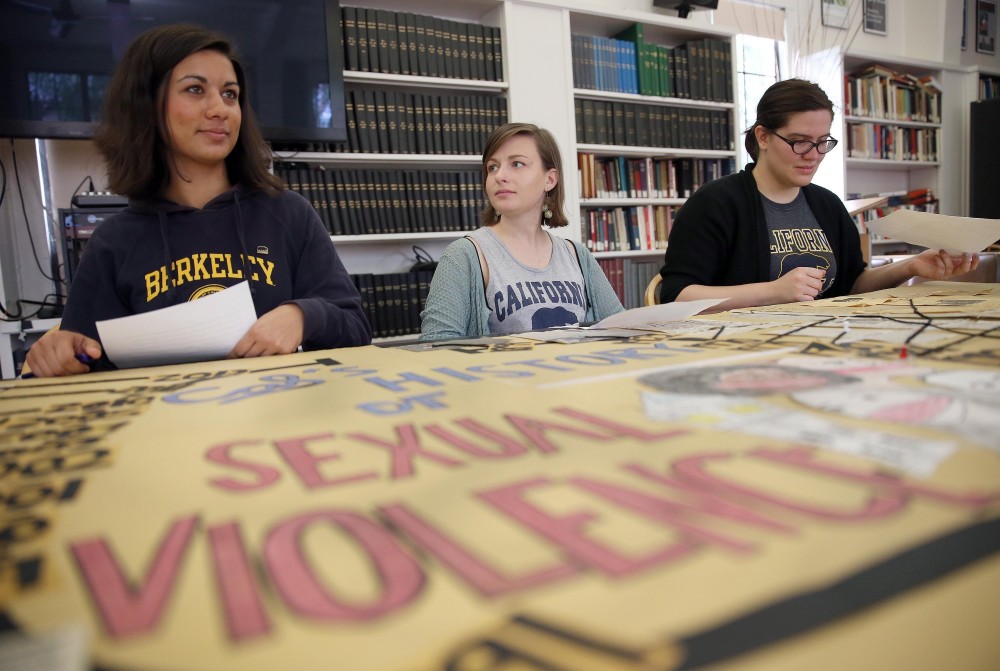By Sandy Banks
Los Angeles Times.
College kids have been trickling home this week, brain-dead and bleary-eyed. What they want is a home-cooked meal and a little TLC. What they might get along with that is a parental third-degree.
High-profile stories of campus sexual assaults, and the heated debates the stories provoked, have some parents of college students worried and confused. I’ve been hearing from them since I wrote a column on the uproar over the Rolling Stone account (now considered questionable) of an alleged gang rape at the University of Virginia.
That left some parents worried about false charges against sons. “The murky world of sexual exploration among young people is stacked against boys and men,” the mother of a young man fretted in an email. “I am continuously astounded by how cavalier some girls can be with something as serious as a rape.”
Other parents were concerned about the safety of their daughters. The father of two female college students told me he is “worried every day” about their safety on campus; they’ll find Mace in their Christmas stockings this year. “I don’t want to frighten them,” he said, “but I don’t know what else to do.”
I thought talking with a student might put those worries in perspective. I turned to a young woman at Occidental College, in Los Angeles, a campus that spent a year in the spotlight for its clumsy handling of students’ sexual abuse reports.
Wellesley Daniels is a sophomore and senior writer for the university newspaper. I’ve read her pieces about changing the “rape culture”; they are smart and well-researched. She supports better training for college officials and more education for students.
She thinks the explicit consent required by California’s new “yes means yes” law is a step in the right direction.
But the most important changes won’t happen on campuses or in courtrooms, she wrote:
“We need to stop teaching our daughters to be afraid of sex…. We’ve got to stop teaching our sons that sex is something they must cleverly and painstakingly work out of a woman. … We need to teach our sons and daughters that sex is fun.”
I tried a version of that years ago; it didn’t work so well. My daughter covered her ears and shouted “TMI”, too much information, and not the kind she wanted to hear from her single, middle-age mother. So I shut up and she went back to stuffing too-short skirts and too-tight tops into a suitcase bound for college.
But another stilted birds-and-bees lecture isn’t really what Daniels is talking about.
At 19, she’s a feminist; a word she said she’d never heard growing up in New York, where her high school felt “misogynistic” and girls “built their own culture with each other around the expectations of men.”
She thinks parents ought to start paying closer attention to the way social mores, including the rules of sexual engagement, have been shaped by the needs and whims of men. As our girls grow into young women, we need to help them understand the power they have but may not be prepared to exert.
“The culture says that we have to protect our daughters,” Daniels told me over breakfast at an area diner. “We’re teaching young women that the world is a scary thing and it will come at you … and you have to figure it out and respond.”
She thinks that attitude discourages young women from taking the reins in ways as public as choosing a career and as private as choosing a sexual partner.
“We ought to empower daughters to be decisive: to not just respond and react to the world, but to make their own decisions and choices, and deal with the consequences.”
Daniels feels lucky to be at Occidental, where she’s found a like-minded group of “empowered” women and felt the culture on campus shift as university officials began to better attend to sexual assault allegations by female students.
And I feel lucky as a parent to have an insider’s view of the climate on campus from someone so thoughtful and willing to be candid.
She acknowledged that male students are on the hot seat now; they worry that women are apt to cry rape when what they feel is regret.
“You can definitely find some resentment among some men in the fraternities,” Daniels said. “Those guys might be good people, but they just don’t realize the extent of the issue and how bad it really is for women.” But things are changing, as awareness of the circumstances that lead to sexual violence grows. “The younger guys on campus, they seem more respectful and careful about what they do or say.”
Daniels has the same concerns and mixed feelings that many parents have, as we consider what the road to sexual equality might look like, and what the trip might require.
I’ll let her explain it, because she’s living through the tension and the turbulence in campus dorms and classrooms and parties, and understands how hard it sometimes seems to make sense of it all:
“It’s a really weird place in the beginning of college, with people finding themselves,” she said. “People are sexually weird and awkward and we’re all just figuring it out.
“It gets really sticky when drinking’s involved; the line is totally blurred. You’re very rarely going to have ‘sober sex’ with someone you’re not dating. … And it sucks if you’re that guy that really was just trying to show you liked a girl. Or you’re that girl who feels ashamed about something you shouldn’t be ashamed of.”
It’s important, she said, for the college to have a process that can punish rapists and deliver justice. “But it’s not getting to the real problem; that’s people to people and relationship to relationship. And that’s something we can’t be afraid of.”
___
(Sandy Banks is a columnist for the Los Angeles Times.)














































































































































































































































































































































































